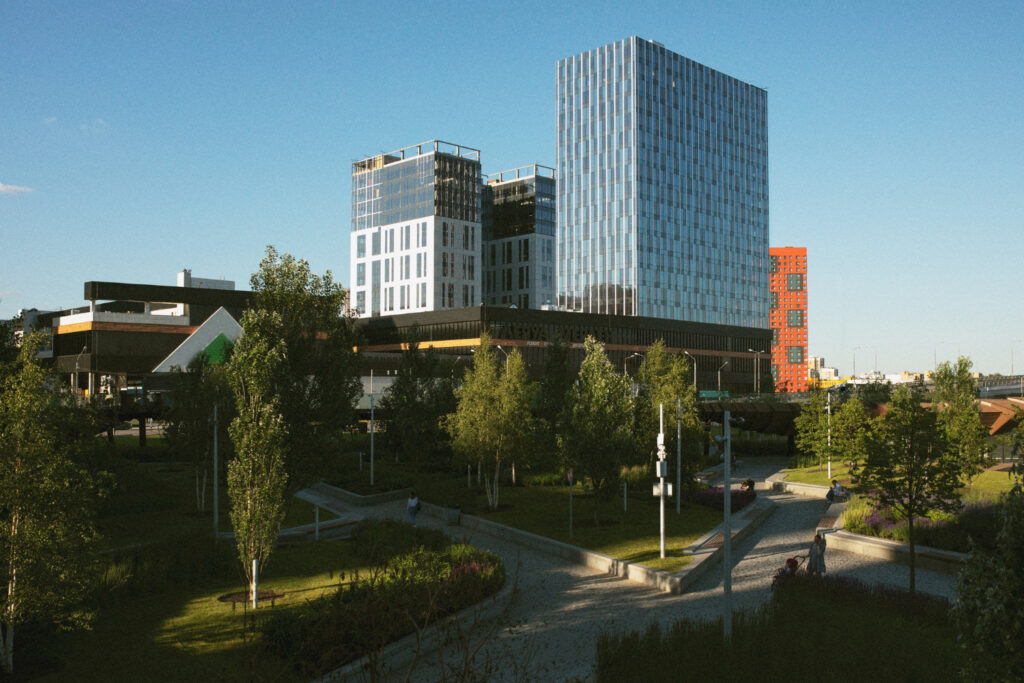For families committed to long-term financial growth, commercial real estate (CRE) offers a proven path to generational wealth. “It’s a powerful engine for generational wealth because it provides both ongoing cash flow and long-term appreciation,” explains Ben Reinberg, an experienced commercial real estate investor. Investing in such commercial assets, ranging from office buildings to apartments, can establish a financial foundation that will benefit future generations. Here are the main reasons why CRE proves to be very efficient in building generational wealth.
Cash Flow as a Wealth Anchor
One of the most important advantages of commercial real estate is its ability to generate consistent, recurring cash flow. This will earn you a steady income that can be utilized to defray costs, purchase new assets, or divide among siblings.
Reinberg emphasizes that cash flow is the lifeblood of long-term wealth. “Consistent cash flow is what allows families to weather economic storms while continuing to build wealth,” he says. In practice, rental checks from tenants can be used to fund living expenses or pooled to acquire additional properties.
Appreciation and Equity Growth
In addition to providing income, well-chosen properties tend to appreciate in value over the years. As property values rise, that growth builds equity. Rising equity directly increases a family’s net worth. That same property, acquired by the first generation, may double or triple in value over time, increasing family equity and long-term net worth dramatically.
Families can also leverage their accumulated equity for the next asset by completing a refinance or using a property as leverage, without needing to sell the first investment. The appreciation of one asset can replace the purchase of the next asset to compound the portfolio.
Tax Advantages That Preserve Wealth
Commercial real property offers lucrative tax benefits that help preserve wealth over generations. Depreciation is one significant advantage: Owners can claim a fraction of a property’s depreciation over taxable income each annum, even while the property is truly appreciating. Depreciation essentially shelters some of your income from taxation through leasing, with a bigger amount of cash remaining within the family’s investment pool to reinvest and accrue over the long run.
Another valuable weapon is the 1031 exchange. This United States tax code section allows investors to sell one investment property and purchase another that’s of equal or higher value without having to make immediate capital gains payments on the sale. You can “swap” properties and defer the tax bill indefinitely, potentially forever if done repeatedly and then passed on to heirs.
Bonus depreciation allows investors to accelerate tax deductions, allowing them to write off a large portion of asset costs in the first year instead of spreading them over several years. That quickens the payoff of tax savings, bolsters short-term cash flow, and puts families’ money to work sooner. “Sophisticated investors use strategies like 1031 exchanges and bonus depreciation to keep wealth compounding instead of eroding to taxes,” says Reinberg. For families, that translates into rapid recycling of capital into new opportunities, compounding growth over generations.
Legacy and Portfolio Diversification
In addition to cash flow, commercial real estate can contribute to a family legacy. Owning a building or a portfolio of properties can become an integral part of a family’s story and be something tangible that is passed down. It may be easier to identify with a building or property that will matter in someone’s life compared to a stock portfolio that is largely viewed as an abstraction. Unlike a stock certificate, a commercial property is tangible. Future generations can walk through it, point to it, and take pride in the family legacy it represents.
Investing in CRE can also provide valuable diversification to a portfolio. Real estate behaves differently from stocks and other investments. Property values and rents do not fluctuate significantly with daily sentiment in the market; thus, real estate can act as a stabilizer for a family’s wealth in both expanding and contracting economies. Finally, when a family diversifies its investment across multiple property types and locations, it protects its wealth further from local downturns.
CRE as a Path to a Prosperous and Enduring Legacy
Developing generational wealth takes time, smart stewardship, and a long period of vision, and commercial real estate has all three. You get a reliable, steady income, tremendous appreciation, and tax advantages, all in a tangible asset that can be transferred from one generation to the next. If done wisely, CRE can be utilized for more than simply a business; it is a successful multigenerational wealth strategy.
By grounding a family’s financial plan with superior, income-generating properties, each generation can reap the rewards of the previous one’s foundation-building efforts and, with that, commercial real estate can be a proven path to a healthy and lasting legacy.

